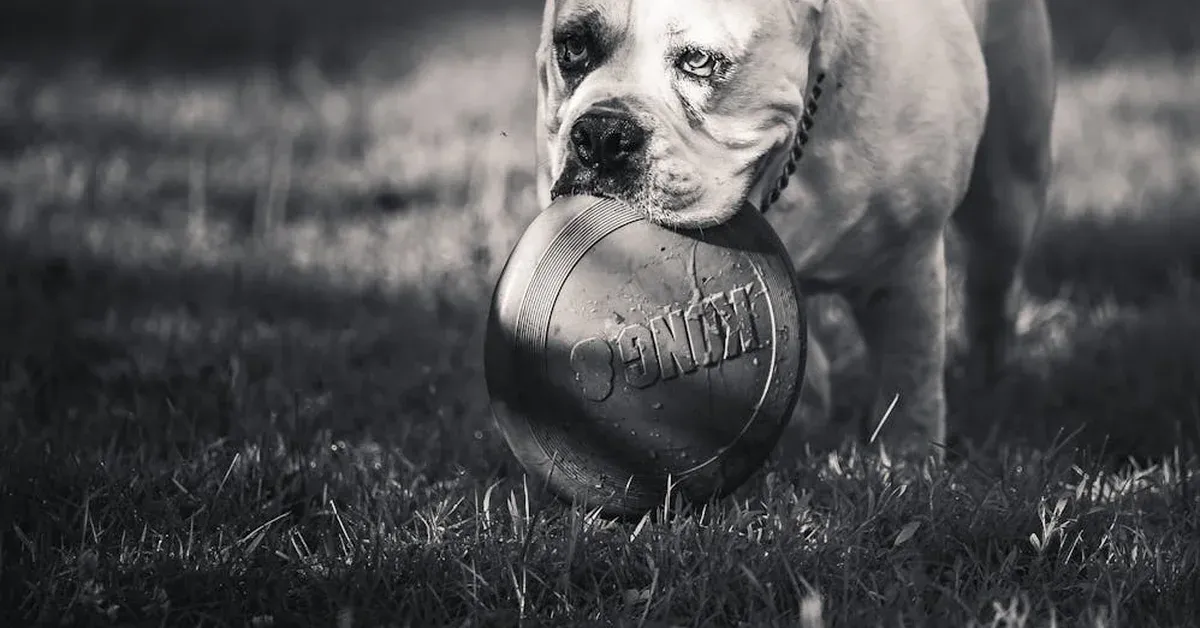
Think your dog just loves playing fetch? A new study suggests something deeper might be happening. Researchers found that one in three dogs shows signs of real toy addiction - a compulsive play behavior similar to human gambling addiction. This goes beyond loving their squeaky toy. It’s a neurological compulsion that gives us new insight into how dogs think.
For years, we’ve celebrated dogs who are “ball crazy” or “fetch obsessed.” But this research shows that some dogs develop an unhealthy, addictive relationship with their favorite toys. It moves past normal enthusiasm into a real psychological problem. This changes how we should think about playtime and our pets’ mental health.
The research, published in Nature Scientific Reports, shows that what we call “high drive” in dogs can sometimes become problematic. Scientists watched hundreds of dogs and found clear addictive behaviors. These dogs get intensely frustrated, whine constantly when their favorite ball isn’t available, and can’t stop playing even when told to.
These patterns look a lot like human behavioral addictions such as internet gaming or gambling. The study found terrier and shepherd breeds are most likely to develop this problem, especially border collies. This suggests some dogs are genetically wired for this intensity, which can turn from healthy activity into obsession without proper management.
What Happens in Their Brain
So what’s going on inside your dog’s head? Experts think the same dopamine reward system involved in human addiction is working overtime in these “ball junkies.” Waiting for a throw, chasing, catching - each step gives a hit of pleasure. Over time, some dogs need that dopamine fix desperately, overriding other instincts and training.
Breeds like border collies and terriers were bred for jobs requiring intense focus and repetitive behavior. A border collie’s herding instinct or a terrier’s chase drive easily becomes relentless toy pursuit. When this natural motivation isn’t channeled properly, or if the dog gets too much of one type of play, it can become an unhealthy fixation. This helps us see our pets as complex psychological beings with their own struggles.
Warning Signs and Solutions
For concerned owners, spotting potential dog toy addiction means looking past the tail wags. Does your dog ignore food, other dogs, or you when their favorite toy is around? Do they get stressed or anxious when the toy is put away? Is their behavior around the toy getting more intense or aggressive? These could be warning signs.
Managing this doesn’t mean getting rid of all toys. Instead, try strategic changes and mix up their activities. Rotate toys weekly so no single item becomes an obsession. Add new activities like scent work, puzzle toys, or training sessions that require mental effort instead of just physical repetition. Think of it like managing screen time for kids - moderation and variety work best. If you’re struggling, talk to a certified animal behaviorist or veterinarian. This isn’t just about stopping a bad habit. It’s about supporting your dog’s mental health, just like we explore the science behind human habits and well-being.
This new field of animal behavioral science shows us that our pets are more complex than we often think. Their inner lives, including potential compulsions, give us deep insights into addiction across species.
Next time you see what looks like an innocent game of fetch, remember there’s complex psychology at work. This study doesn’t just call your enthusiastic dog a “ball junkie.” It starts important conversations about dog mental health and how our understanding of addiction can help us care better for our pets. Your dog might need a detox from their toy collection too. For more on animal behavior science, check out this related article from Phys.org.